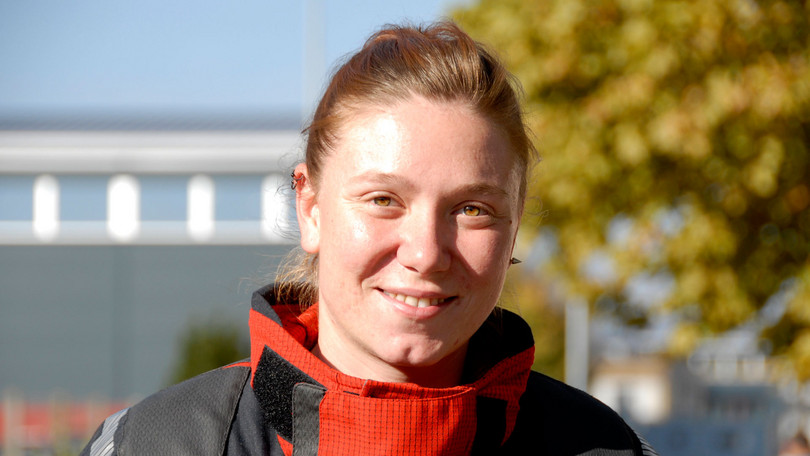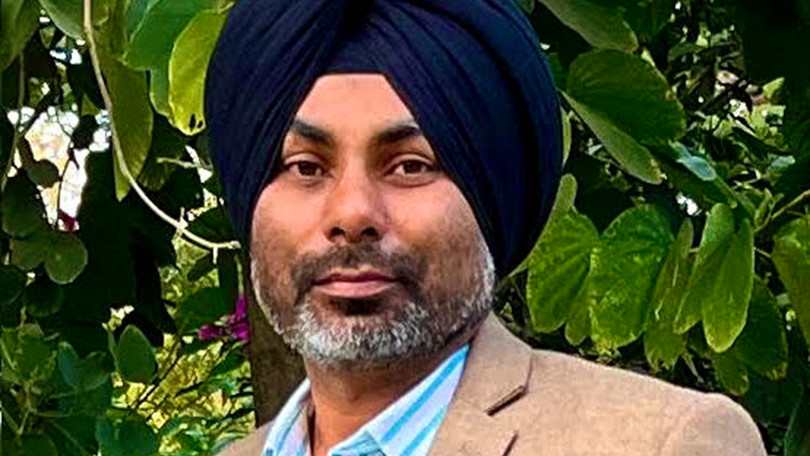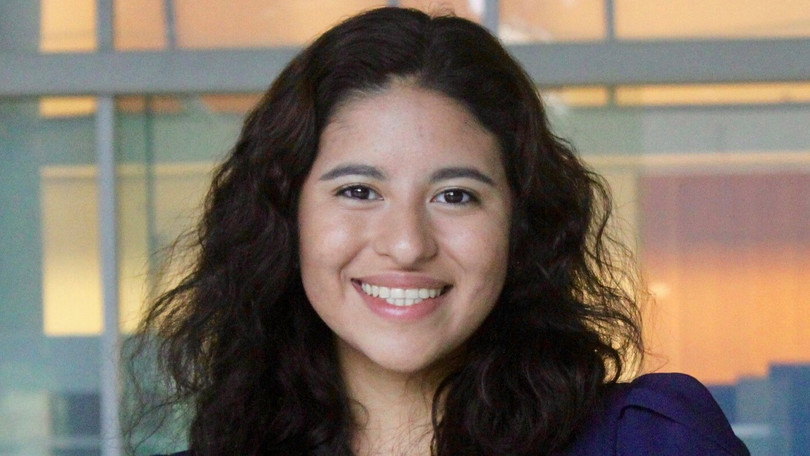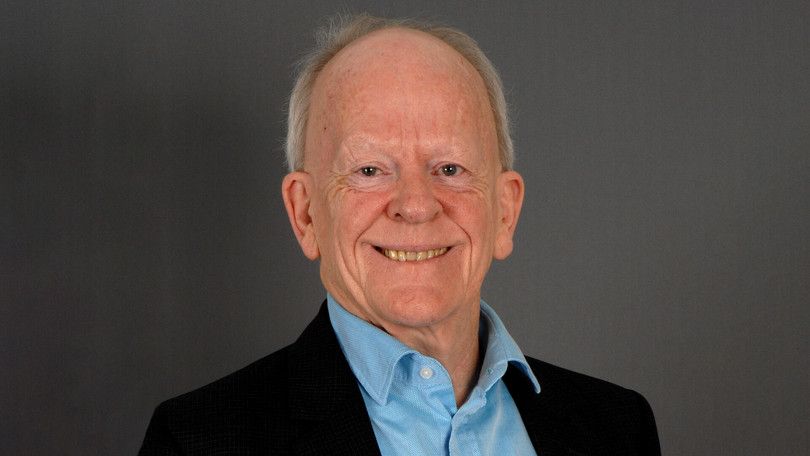M.Sc. Sustainable Chemistry: Statements
What distinguishes the Sustainable Chemistry distance learning programme and why is it worth studying? On this page, cooperation partners and contributors provide information.
- Adnan Akin Akcay: How coffee waste is turned into cosmetics (article)
- Julia Stärk: Lots of ideas for new projects
- Further quotes about studying
Lots of ideas for new projects
 ©Leuphana Professional School
©Leuphana Professional School
Julia Stärk has been completing a total of 8 modules from the M.Sc. Sustainable Chemistry as a PSI certificate programme since 2024. This allows her to study the content of the Master's programme without a Bachelor's degree.
Why did you decide to do further education in Sustainable Chemistry?
I completed my apprenticeship as a chemical laboratory technician in Switzerland from 2009-2012 and have been working for the same company ever since. My focus is on the practical optimisation in the laboratory of the synthesis processes of new crop protection products until they are ready for production.
I am passionate about my work, but I wanted to be able to utilise my now considerable influence even better. The future manufacturing route of a product is decided in our plant. After that, almost nothing can be changed by registration. Since I became aware of this key role, I started looking for further training that I could do with my previous knowledge and that would be as helpful as possible in making chemical reactions more sustainable "at second glance".
As I did my apprenticeship straight after leaving school, I never went to university and therefore didn't do a Bachelor's degree. This meant that I was denied virtually all the really interesting degree programmes that I thought would be useful. All the Bachelor's degree programmes that sounded interesting were not suitable for my needs and I was immediately rejected from Master's degree programmes, if I received an answer at all. The realisation was drastic - for universities, my more than 10 years of professional experience on the scale of 5mg to 100kg of product per batch
and I honestly felt a bit overqualified for a bachelor's degree. I think there are many people in my position and the certificate programme is a wonderful way to make the world of study a little more accessible and fair. Unfortunately, the individual modules are more expensive than the complete Master's programme, but that is also a legal problem and I am grateful that the PSI certificate programme gives me the opportunity to access this content at all.
The supervisors at Leuphana were the only ones who appreciated me immediately and also gave me very respectful and competent advice. At all times, I felt that I received the support I needed and more. From the teachers as well as from the administration.
How can further training support you in your professional life?
I hope that this further training will enable me to have a better influence on the development of more sustainable crop protection products. The production routes are already on the right track as, for example, many solvents are recycled and therefore hardly need to be bought new. Catalysis is also already being used on an industrial scale. Both have been implemented for decades as they save costs.
Biodegradability and waste are still an issue that is not yet generally in focus (but is of course being addressed) - also because it is quite cheap to incinerate waste and there are not yet many legal restrictions. However, this will intensify in the coming years, presumably worldwide. Of course, it is better to be prepared than to lag behind. Money and time are major motivating factors for all companies, as they always have to work economically. In addition, pressure from the general public is now also making sustainability more of a focus and part of companies' self-dictated goals worldwide. Here, too, the degree programme sets valuable priorities, as the conflict between ethics and profitability has been understood. It does not have to be a conflict, rather it can go hand in hand, as some of our processes already show.
Have you already been able to take knowledge from your studies into your career or work on problems from your everyday working life and find solutions during your studies?
On the one hand, I was able to benefit from my more than 10 years of professional experience during my studies (and was not as inferior as I expected), and on the other hand, I was able to incorporate what I had already learnt into my way of working. My role has already expanded to ‘identifying potential problems in waste treatment’ and many ideas for new projects have already emerged in several departments, as you look at everything directly and continuously from a new perspective.
How does the PSI certificate programme work?
Instead of a complete degree programme (Bachelor's, Master's, ...), you only choose individual modules and book them. Important to know when booking: If you book several modules together, you will receive a certificate or diploma at the end - but the university will advise and support you very well if you contact them early on. A module takes about 6 weeks, during which you should really work on it regularly in order to get the most out of it and not have all the stress just before the end of the module.
How do you experience the exchange with your fellow students, lecturers and the programme team?
Very positive, there is very quick feedback and support when needed. However, it is of course special that although you are part of a Master's programme, you are somehow not. As I only took 2/3 of all the modules in the M.Sc. programme and not everyone is in the same cohort in order to have more flexibility at work, the sense of belonging can suffer. However, I can assure you that you are regarded and respected as absolutely equal to all other students.
What advice would you give others about studying part-time?
You definitely have to be aware that it is a huge additional workload, which I also underestimated at the beginning. Leuphana's estimate of 20 hours per week is not excessive and fairly accurate. So it's basically an additional 50% job within the time limits of a module (approx. 6 weeks)! I really enjoy the breaks between two modules whereas students on the full Master's programme don't have this luxury.
Davinder Singh Kahlon, Alumnus M.Sc. Sustainable Chemistry
For me, learnings from the Sustainable Chemistry Masters Program are like an asset that will keep growing as I explore further on the relevance of sustainability in my professional domain.
Maria Santos, Student M.Sc. Sustainable Chemistry
I want to thank you for such an interesting first module and seminar. I learned a lot and this module definitely showed me that I want to be here and learn more about sustainable chemistry.
Prof. Dr. James Clark, University of York, Programme Lecturer
I welcome this new course on Sustainable Chemistry. An understanding of sustainability and its vital role in the future chemical industry is essential to the training of the modern chemist.
Stefan Haver, Corporate Responsibility, Evonik Industries AG
The chemical industry stands out as a gatekeeper on the pathway towards a 1.5C world. It takes a generation of dedicated, interdisciplinary trained chemists to make that change happen. So congrats, Leuphana: With your Masters programme Sustainable Chemistry you really nailed it!
Dr. Martin Vollmer, Clariant International LtdL, Chief Technology Officer
Sustainability is the license to operate for all industries today and in the future and chemistry plays a key role in providing innovative solutions to global challenges around themes such as energy and resource efficiency. Leuphana University’s new Master's Programme (M.Sc.) in Sustainable Chemistry will enable young professionals to build broad and interdisciplinary knowledge. This will help to meet an increasing demand for chemical solutions, that contribute to sustainable development and the Sustainable Development Goals of the Agenda 2030 and beyond.



